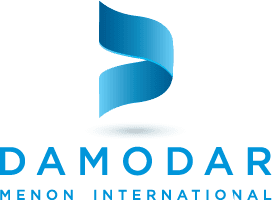When sourcing fabric for your business, understanding the differences between woven fabric suppliers and non woven material suppliers is essential. Both materials serve unique purposes, and choosing the right supplier affects the quality and functionality of your products. This blog explores the key distinctions between woven and non woven fabrics, helping you determine which supplier best fits your business needs.
What Are Woven Fabrics?
Manufacturers create woven fabrics by interlacing two sets of yarns at right angles. This process results in a strong and durable fabric with a structured feel. Woven fabrics are widely used in clothing, upholstery, and industrial textiles. The tight weave strengthens the fabric, making it suitable for long-lasting applications.
Common Uses of Woven Fabrics
Woven fabrics have widespread applications in several industries. From fashion to home furnishings, these fabrics are known for their durability and versatility. Common examples include denim, canvas, and twill. In industrial applications, woven fabrics are used for conveyor belts, protective clothing, and other heavy-duty products.
Key Benefits of Woven Fabric Suppliers
Working with woven fabric suppliers offers businesses access to a broad range of high-quality materials. These suppliers typically provide options that include both natural and synthetic fibers. Furthermore, they allow for customization in terms of colors, patterns, and fabric weights, making woven fabrics adaptable for various projects.
What Are Non Woven Materials?
Non woven materials result from bonding fibers together through chemical, thermal, or mechanical processes. Unlike woven fabrics, non woven materials do not involve interlacing yarns. This production method creates a more flexible but less durable material. Industries often use non woven materials for disposable products, medical supplies, and filters.
Common Uses of Non Woven Materials
Non woven materials are crucial in healthcare, construction, and agriculture. They are widely used in products such as face masks, surgical gowns, disposable wipes, and geotextiles. Non woven fabrics are lightweight and often designed for single-use applications, making them highly efficient for industries that require fast production.
Key Benefits of Non Woven Material Suppliers
Non woven material suppliers provide affordable and eco-friendly products, especially for single-use items. The production process is faster and uses fewer raw materials, making non woven fabrics cost-effective for bulk production. Suppliers in this field often specialize in meeting specific technical needs, such as water resistance or filtration efficiency.
Woven vs. Non Woven: Key Differences
Understanding the differences between woven and non woven fabrics is essential when deciding which supplier to partner with. Here are some key points of comparison:
1. Durability
Woven fabrics offer greater durability because of their interlaced structure. This feature makes them ideal for products that need to withstand wear and tear over time. In contrast, non woven materials, while less durable, are more flexible and lightweight, making them suitable for disposable or single-use products.
2. Cost
Non woven fabrics are generally more cost-effective due to their simpler production process. Businesses seeking to manufacture products in bulk at a lower cost may find non woven material suppliers more suitable. Although woven fabrics tend to be more expensive, they offer better long-term value because of their strength and durability.
3. Applications
Woven fabrics serve a wide range of industries, from apparel to industrial products. Non woven materials, however, cater more to specialized sectors, primarily in healthcare, packaging, and filtration. Your industry and specific product needs will determine which fabric type works best for your business.
4. Customization
Woven fabric suppliers typically offer more customization options, allowing for a variety of patterns, colors, and textures. Non woven material suppliers provide more standardized products but can customize technical properties, such as absorbency or strength, depending on your requirements.
Choosing the Right Supplier for Your Business
Deciding between woven and non woven suppliers requires careful consideration of your business’s unique needs. Companies that need durable, long-lasting materials may find woven fabric suppliers more suitable. On the other hand, if your focus is on disposable products, fast production, or cost-effectiveness, non woven material suppliers may be a better fit.
Evaluating product requirements, budget, and sustainability goals is crucial in making the right choice. Many businesses collaborate with both woven and non woven suppliers to meet different production needs.
Conclusion
Both woven fabric suppliers and non woven material suppliers bring unique strengths depending on your product needs. Whether you require the durability of woven fabrics or the flexibility and affordability of non woven materials, India offers top-tier suppliers to meet your needs. Carefully assess your goals and choose the right supplier to ensure success in your projects and maintain product quality.
If you are searching for online buying and selling Textile fabric, TEXchange Global serves as the cornerstone for exports and imports, providing a platform for textile companies in India to connect and trade across international markets.
